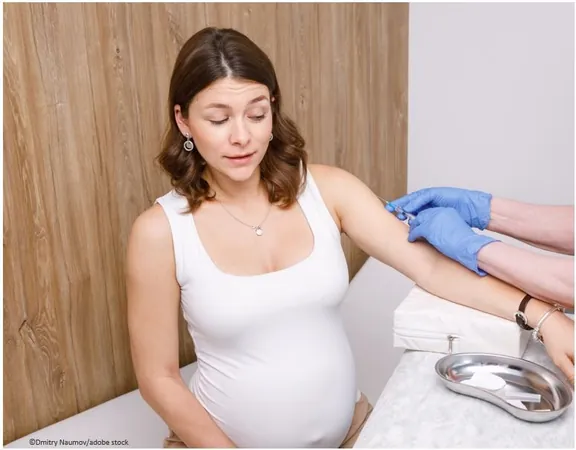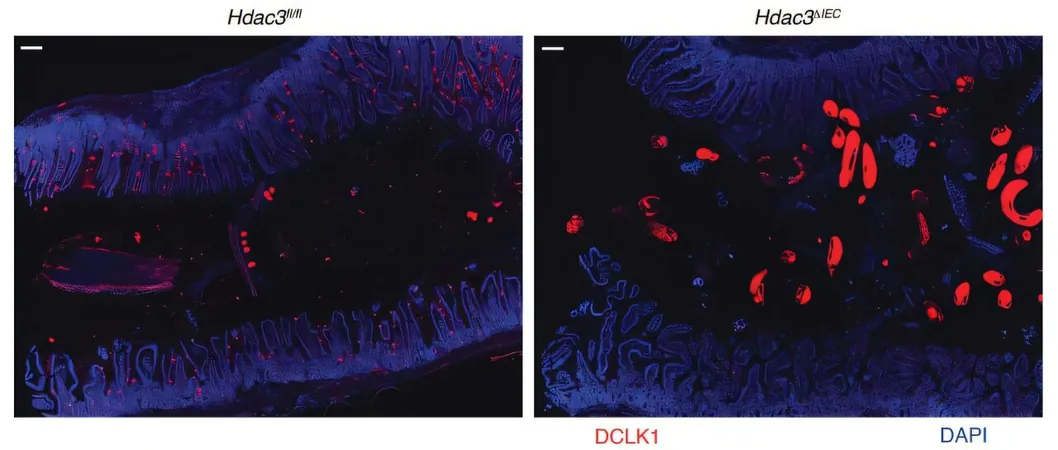
CDC Introduces Heplisav-B as Recommended Hepatitis B Vaccine for Pregnant Women
2024-12-18
Author: Wei
CDC Adds Heplisav-B to Guidelines
In a significant update, the Centers for Disease Control and Prevention (CDC) has officially added Heplisav-B to its recommended guidelines for hepatitis B (HepB) vaccination in pregnant women. This addition follows the recent FDA approval in September 2024, which updated the Heplisav-B label to include findings from a comprehensive observational study focused on pregnant individuals who were vaccinated.
Overview of the DV2-HBV-28 Study
The study, designated DV2-HBV-28, surveyed the health outcomes of 75 pregnant women who received the vaccine. Among them, 10 women were administered two doses of Heplisav-B between 28 days prior to conception and the conclusion of their pregnancies. Other participants received the vaccine at various stages: 44 women during the 28 days preceding conception, 24 during the first trimester, 6 in the second trimester, and 1 in the third trimester. Out of the 73 women whose exposure to Heplisav-B was tracked throughout early gestation, the findings revealed that 6 (approximately 8.2%) experienced miscarriages—four of which involved women who had received the vaccine once and two who had received it twice. Moreover, there was one reported stillbirth among a woman who was vaccinated during the second trimester. Notably, no major birth defects were observed in the cohort.
Updated Label Information
The updated Heplisav-B label states, “These data, primarily in individuals who received one dose of Heplisav-B, do not suggest an increased risk of major birth defects and miscarriage.” However, it’s important to recognize that all pregnant individuals are at inherent risk for birth defects, loss, or other adverse outcomes. Statistics from the US general population indicate that the estimated background risk of major birth defects ranges between 2% to 4%, while the risk of miscarriage is between 15% to 20%.
Broader Implications for HepB Vaccination
With the CDC's endorsement, Heplisav-B now joins the ranks of other recommended HepB vaccines including Engerix-B (manufactured by GSK), Recombivax HB (by Merck), and Twinrix (also by GSK). This update allows healthcare providers to offer a wider array of vaccination options to pregnant patients, further safeguarding maternal and fetal health against hepatitis B.
Importance of Hepatitis B Vaccination
The groundbreaking safety and efficacy of HepB vaccines have been substantiated over the last four decades, prompting the Advisory Committee on Immunization Practices (ACIP) to recommend universal vaccination for adults aged 19 to 59, particularly emphasizing pregnant individuals. Additionally, adults 60 years and older, especially those at high risk for HepB, are also encouraged to receive the vaccine.
Conclusion and Next Steps
This exciting development raises awareness about maternal health and the importance of vaccination during pregnancy. Pregnant women and healthcare providers should engage in informed discussions about the risks and benefits of vaccination, ensuring that outcomes lead to healthier families and communities. Stay tuned for more updates as the medical community continues to alleviate health risks associated with hepatitis B during pregnancy.



 Brasil (PT)
Brasil (PT)
 Canada (EN)
Canada (EN)
 Chile (ES)
Chile (ES)
 España (ES)
España (ES)
 France (FR)
France (FR)
 Hong Kong (EN)
Hong Kong (EN)
 Italia (IT)
Italia (IT)
 日本 (JA)
日本 (JA)
 Magyarország (HU)
Magyarország (HU)
 Norge (NO)
Norge (NO)
 Polska (PL)
Polska (PL)
 Schweiz (DE)
Schweiz (DE)
 Singapore (EN)
Singapore (EN)
 Sverige (SV)
Sverige (SV)
 Suomi (FI)
Suomi (FI)
 Türkiye (TR)
Türkiye (TR)